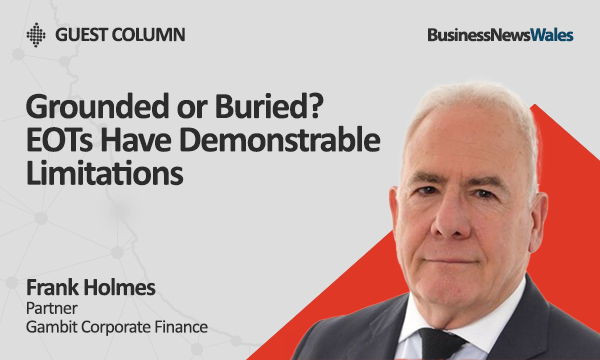
Two years ago, the Cardiff Capital Region’s Local Authority Leaders, Chief Executives, Executive Team and members of the Regional Economic Growth Partnership gathered to take stock. We were five years into the City Deal’s 20-year economic programme, with ambitious targets to create 25,000 jobs, leverage £4bn of investment, and uplift regional GVA by 5%.
The discussion was candid: which initiatives were on track, which had fallen short, and whether our industrial plan and investment focus could deliver on the promises made. What became clear was not just the progress against metrics, but something more intangible and arguably more valuable. Trust.
Over those formative years, a bond of trust had been built across a diverse coalition: politicians, civil servants, academics, business leaders, entrepreneurs, social enterprise champions, and infrastructure professionals. Together, we forged a governance framework, decision-making process and investment appetite that were respected and understood. In short, CCR had cultivated a “collective brain” where different perspectives and experiences enriched outcomes and built shared confidence through consistency and constancy.
The ‘rinse and repeat’ formula helps embed and ingrain behaviours that are reciprocal and valued.
Economics textbooks rarely emphasise it, but trust is an essential ingredient in growth.
When it exists, progress accelerates; when it collapses, it is almost impossible to restore. We see this in everyday life: trust, once broken, is rarely reinstated.
Humans are unique in our ability to cooperate at scale without defaulting to dominance or self-interest, a capacity shared only by bees and ants, whose collective action comes at the expense of individuality. What separates us is the ability to act with integrity: to honour commitments even when it is not in our personal interest. Without that integrity, energy and intelligence risk becoming misguided.
Trust is also a practical necessity. We cannot verify everything in life, we must take some things at face value. We need to know that those in authority will not mislead us, that if they are not prepared to lie for their cause, they will not lie to us either.
Today, trust has been displaced and is in retreat. At national and international levels, we see it eroding across various institutions, including governments, media, scientific bodies, law enforcement, and even within communities. Geopolitical conflicts in war and trade serve as stark reminders of the dangers when trust evaporates.
Successful government depends on the consent of the governed, but that consent requires honesty, consistency, and reciprocity. Too often, promises have been made lightly and abandoned quickly. The result? Citizens become sceptical, and the bond of trust breaks down.
But the responsibility is two-way. Trust cannot be a one-sided contract.
Government must also trust the people and find new ways of engaging them as genuine partners in shaping the future.
The problems and challenges we face are more complex, the rise of new tools such as AI and quantum computing compel us to up our game.
This is where the CCR experience is instructive. Trust was built by bringing together diverse voices and experiences, creating a decision-making ecosystem richer, stronger, and more credible than any single institution acting alone.
Now imagine if this principle were scaled nationally. Instead of policies developed in isolation, governing politicians could partner with an experienced, multidisciplinary cross-sector group – a “collective brain” of the governed, to co-design a national agenda that addresses the issues that really matter.
A shift away from the anxiety of being blamed for things that go wrong, or accusations of evading responsibilities in favour of focussing on process rather than outcomes needs to be instilled.
Such an alignment could create a blueprint for economic well-being: democratic in values, but enriched by the agility, insight, innovation and operational expertise of sector leaders, educators, entrepreneurs and employers.
Wales, with its scale, connectedness and spirit of collaboration, is uniquely placed to pioneer this model. By breaking down the walls between those who make policy and those who drive prosperity, Wales could position itself as a global exemplar of 21st century governance, uniting ambition with expertise to deliver bonafide shared prosperity.
A genuine partnership of a forward-looking government and an empowered, trusted community of the governed could be transformational. The Cardiff Capital Region has shown us what is possible.
The next step is to take this lesson from the regional to the national stage, and show the world what trust, built on diversity and shared purpose, can achieve, the regulatory and public structures being focussed on the services and goods that our people need and want.
Frank Holmes was Founder Chair of the Cardiff Capital Region Economic Growth Partnership and is chair of the CJC Investment Board.






